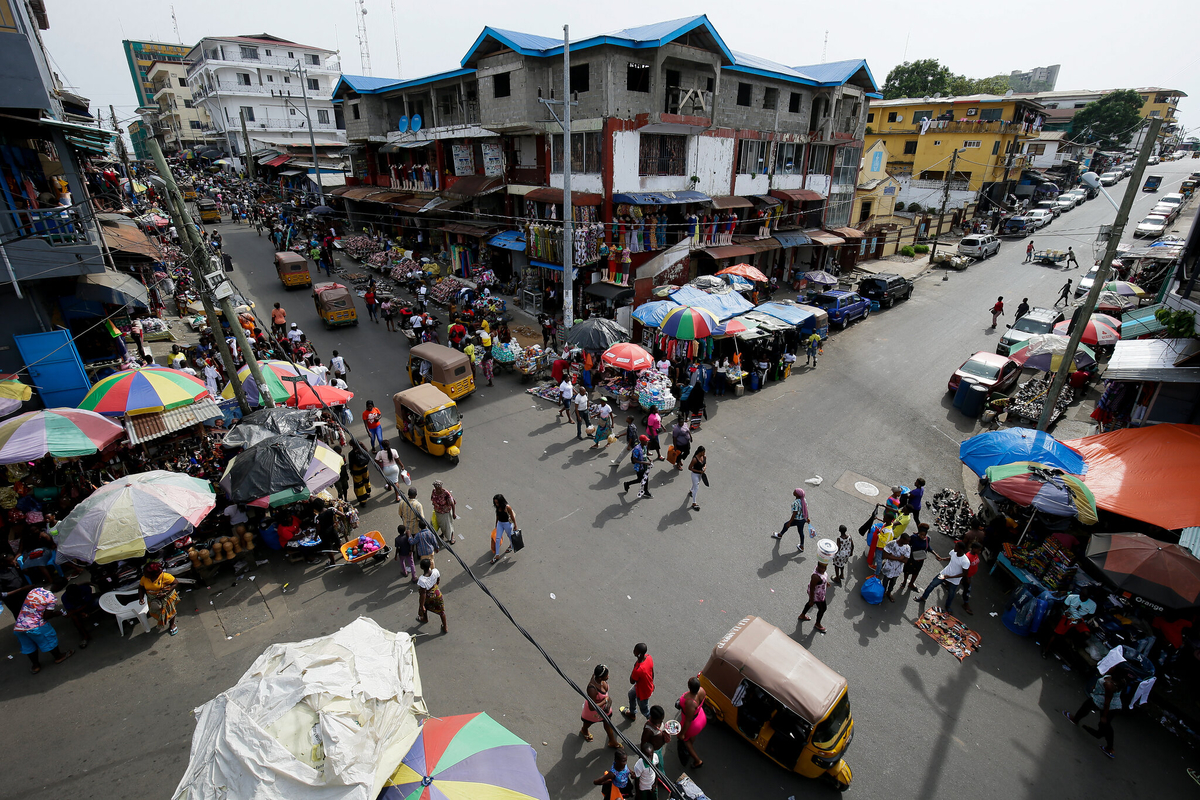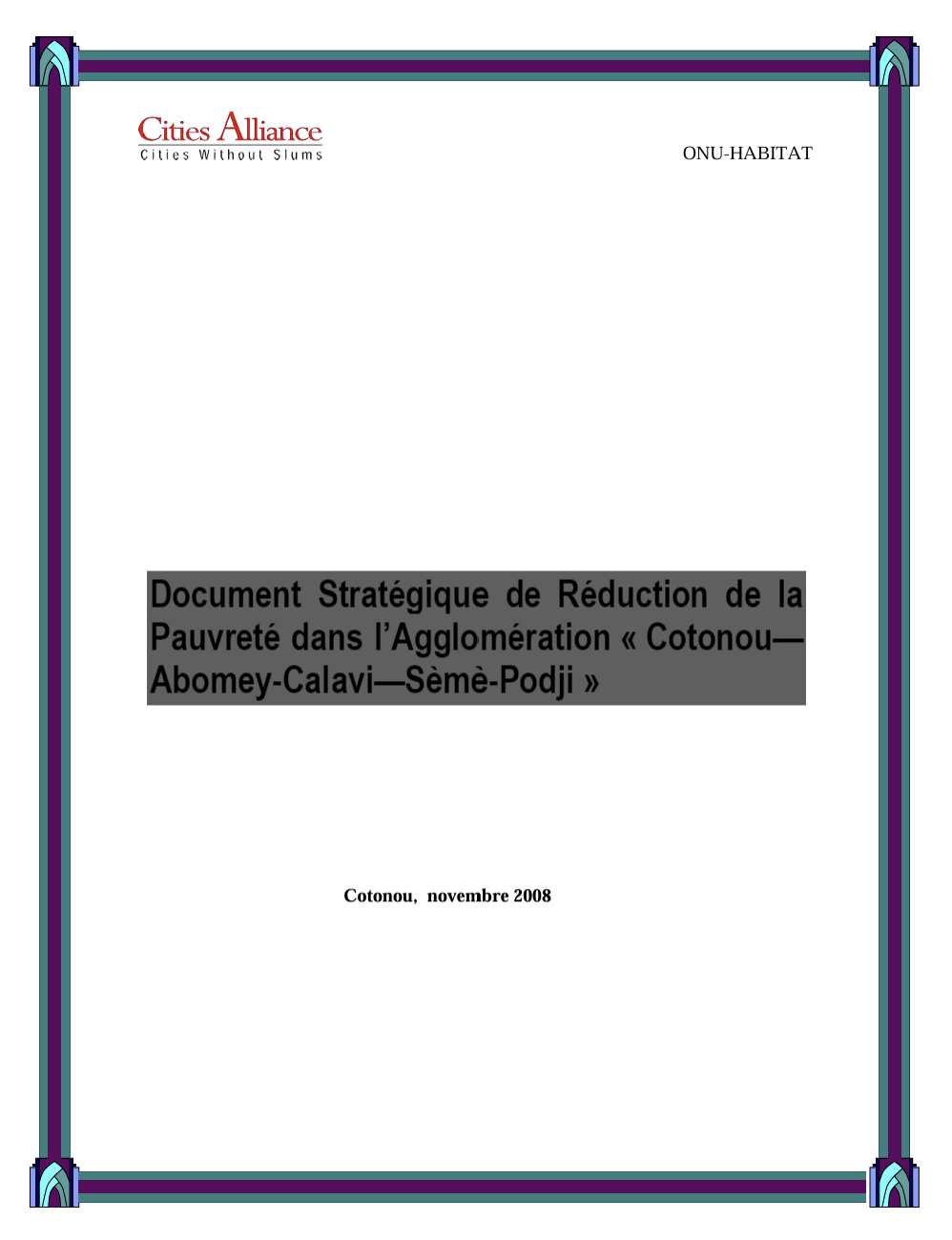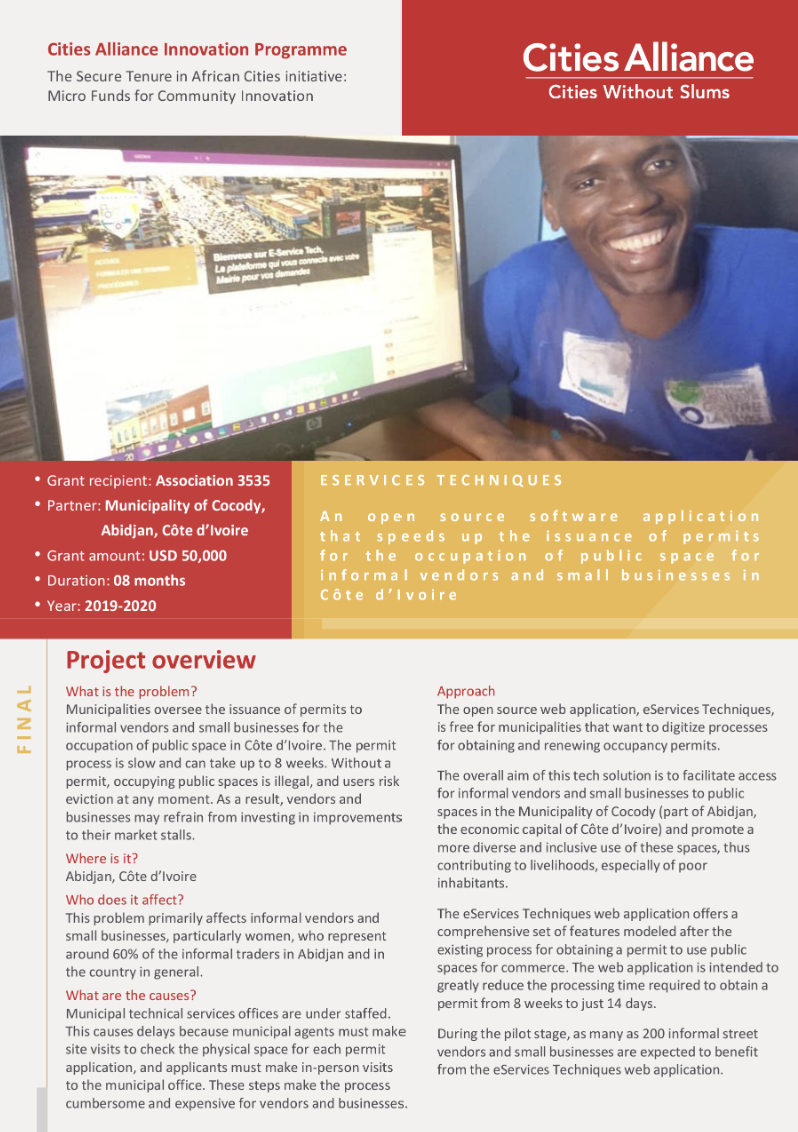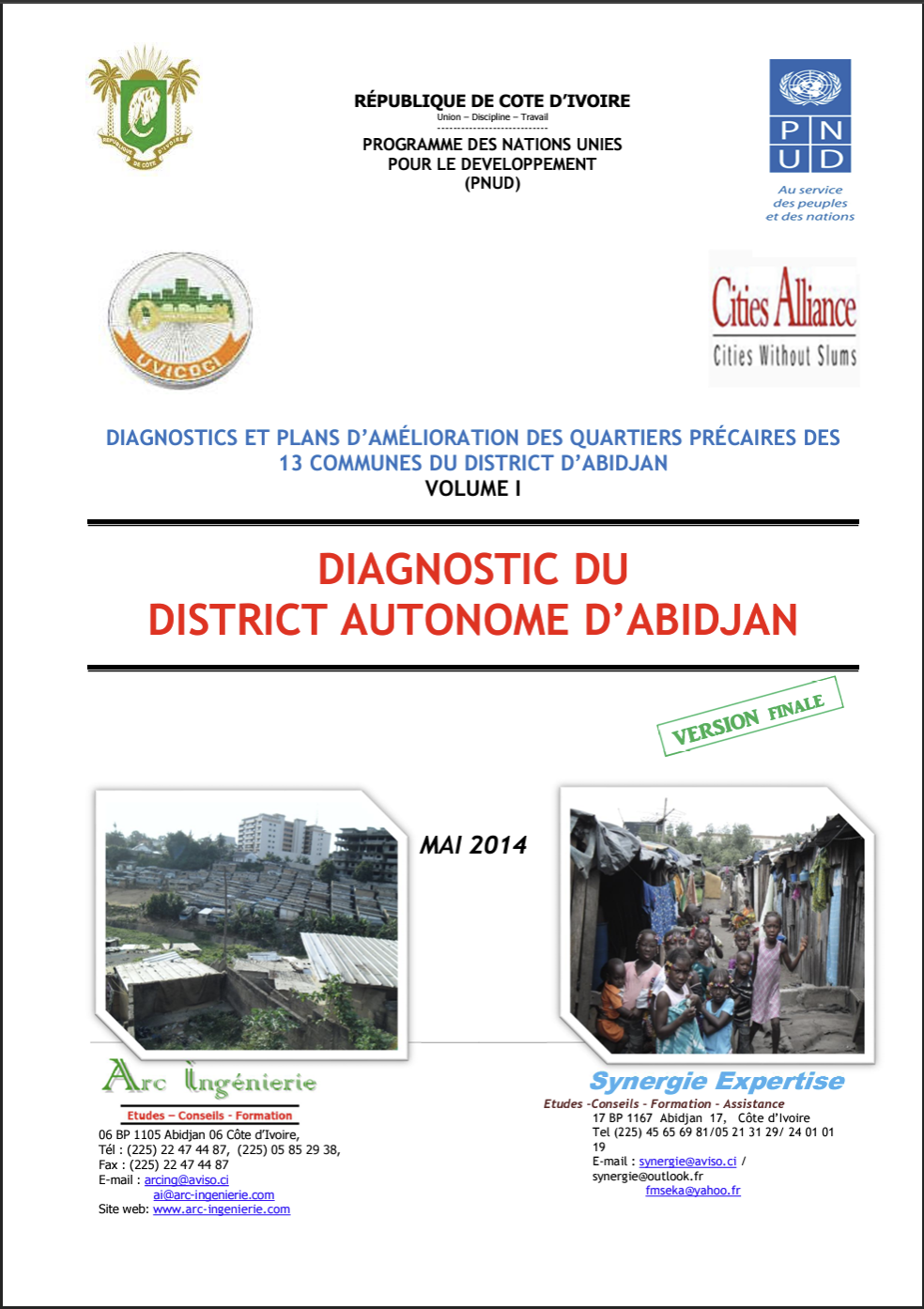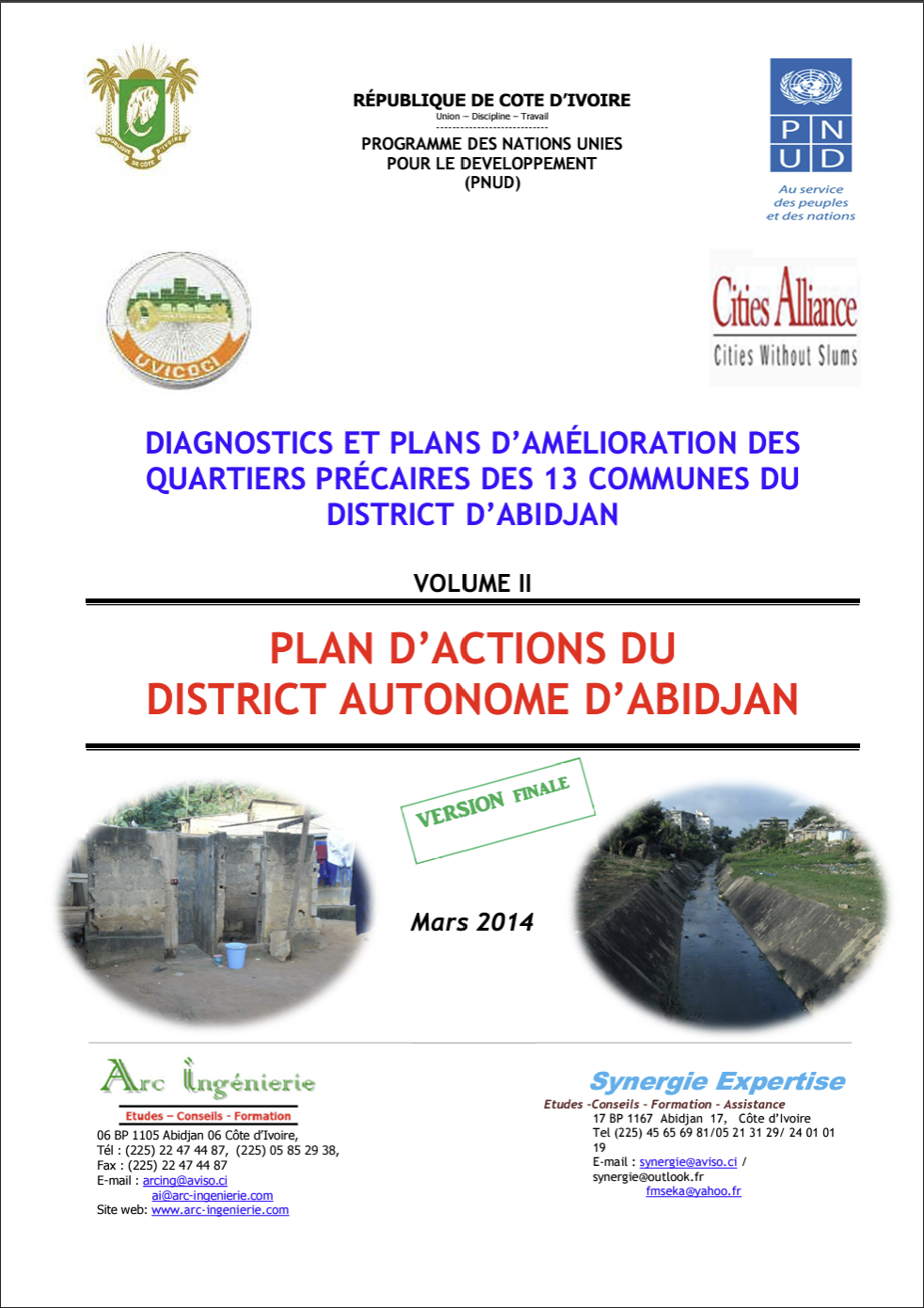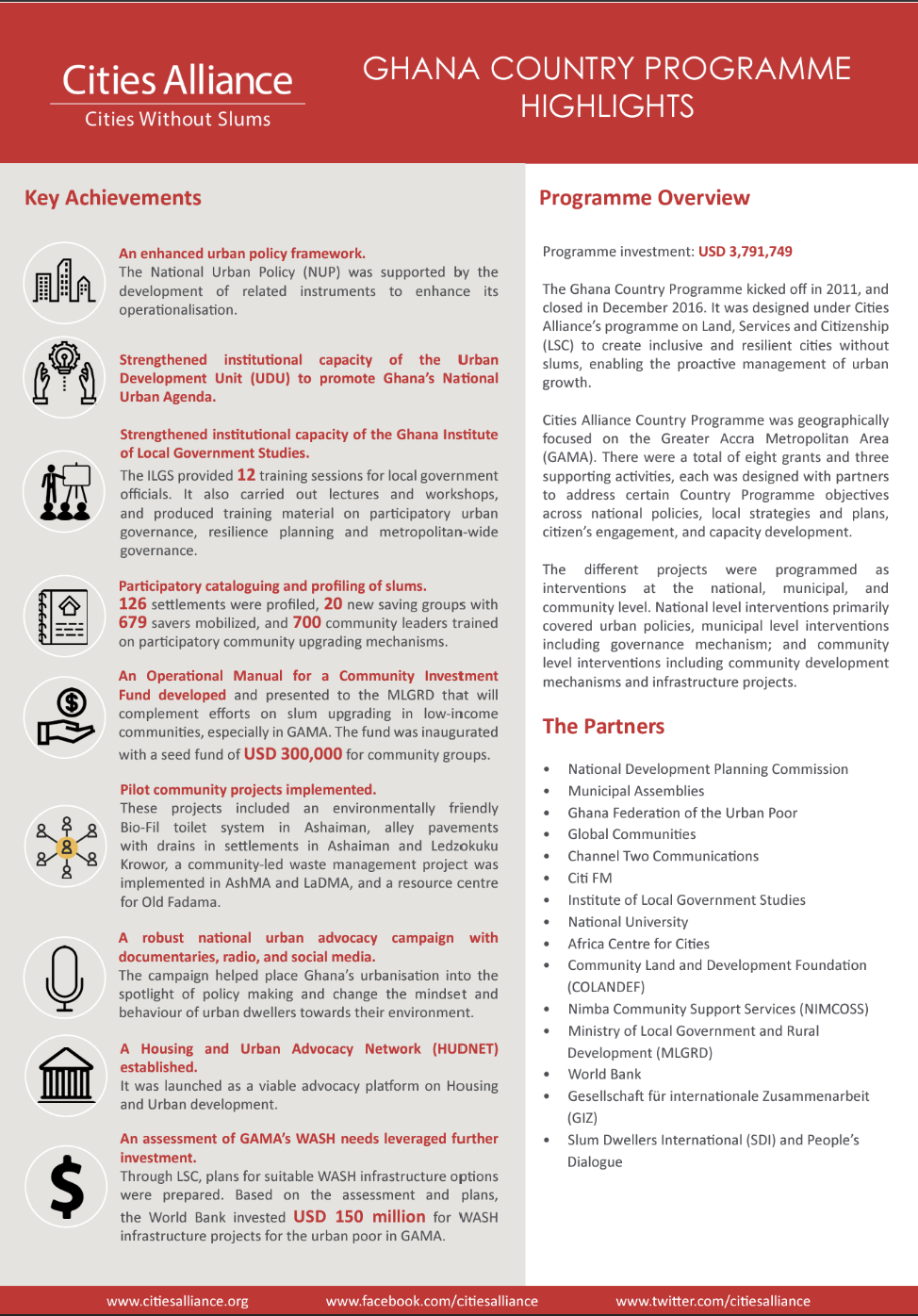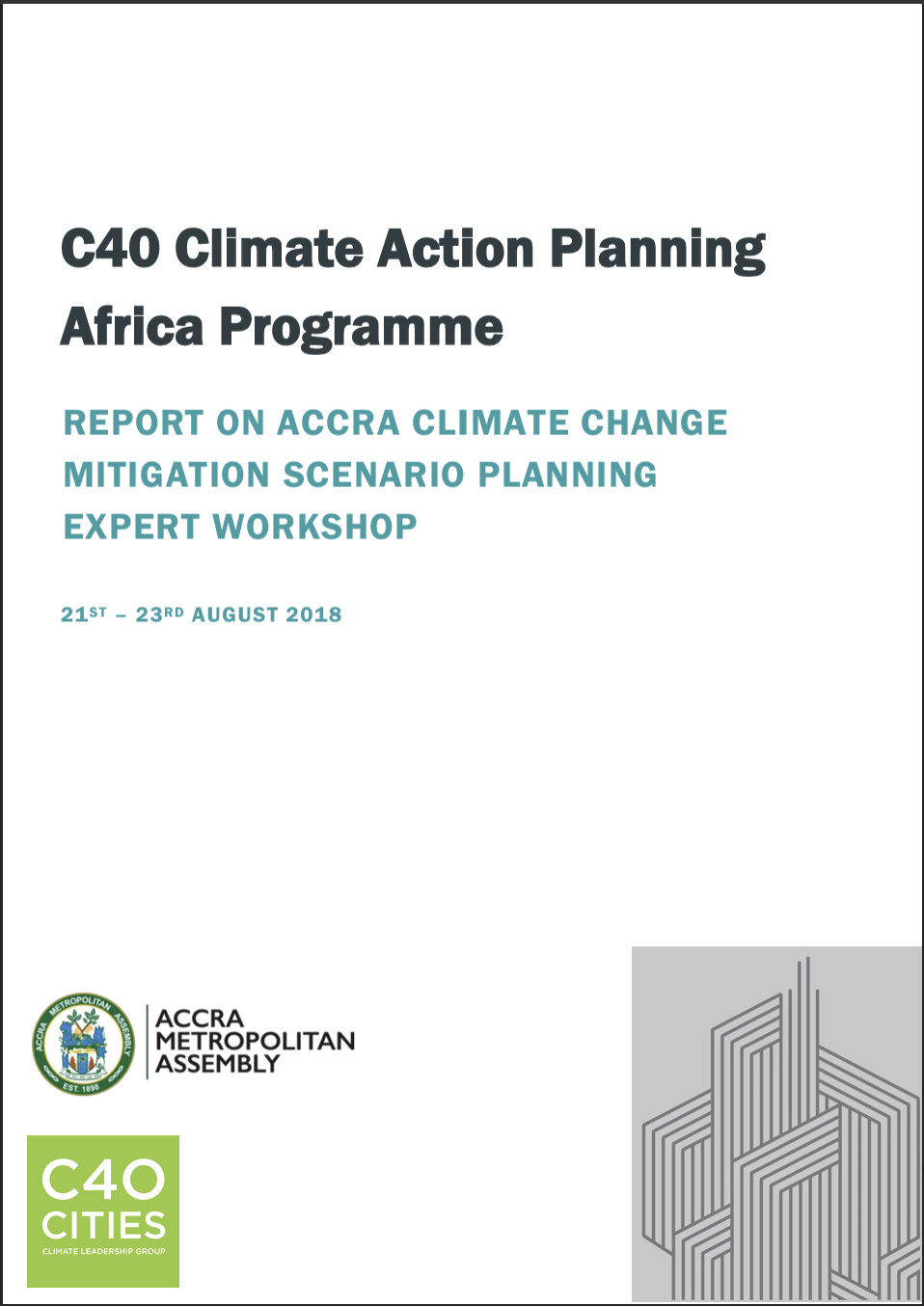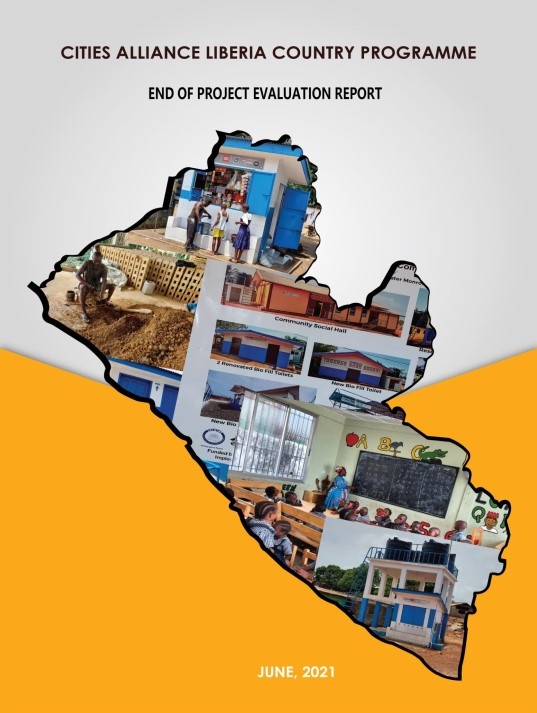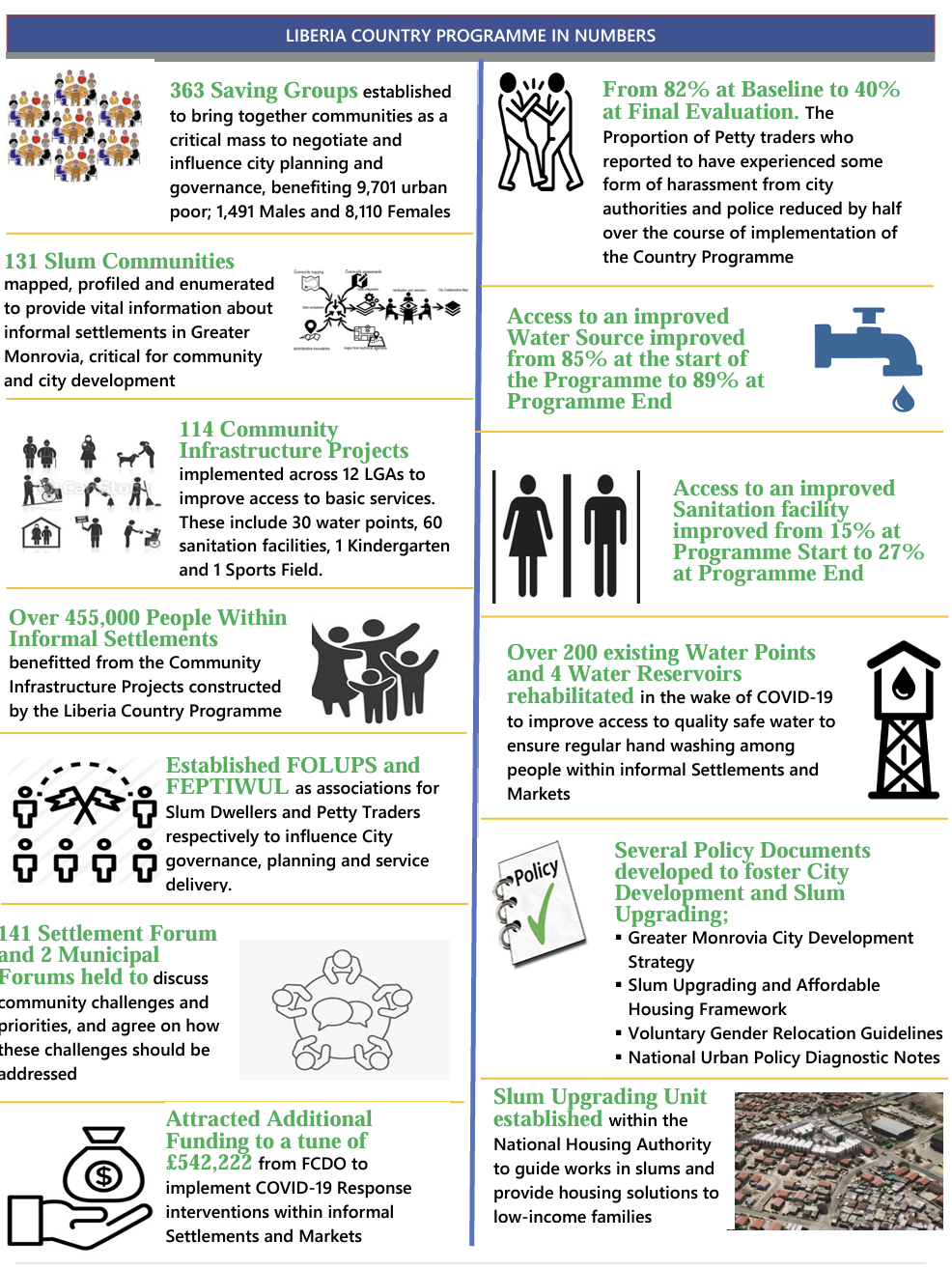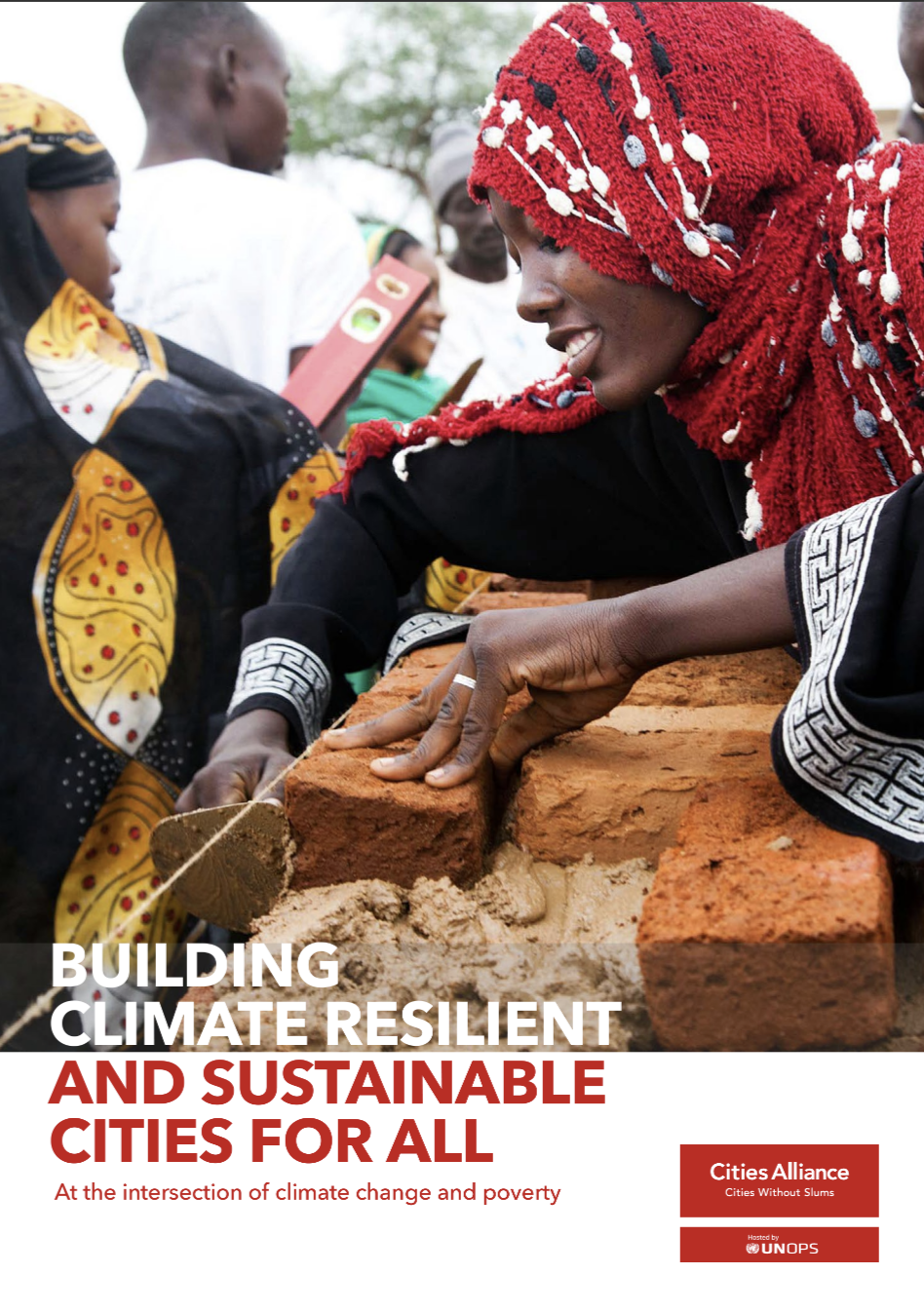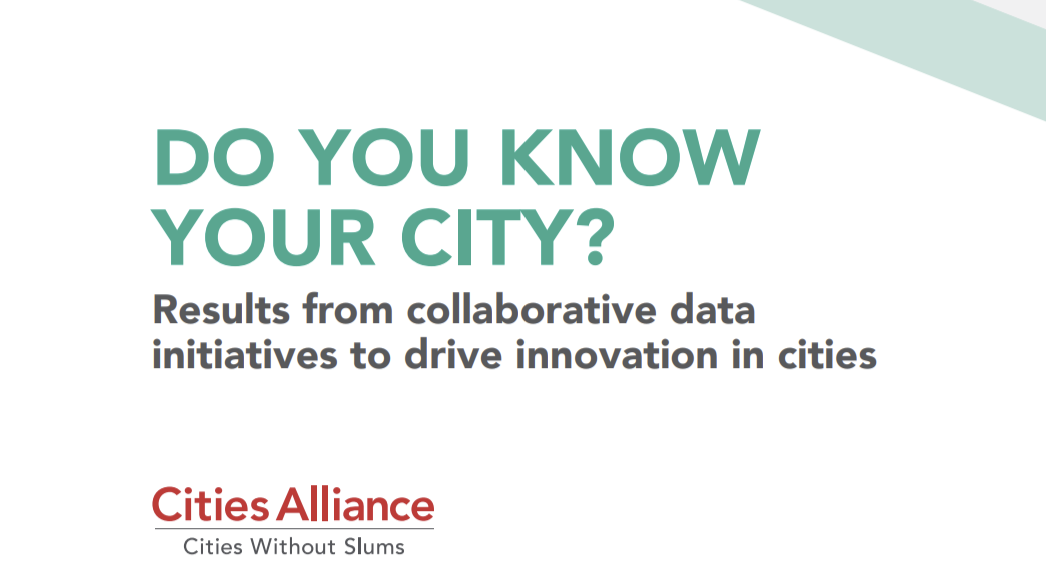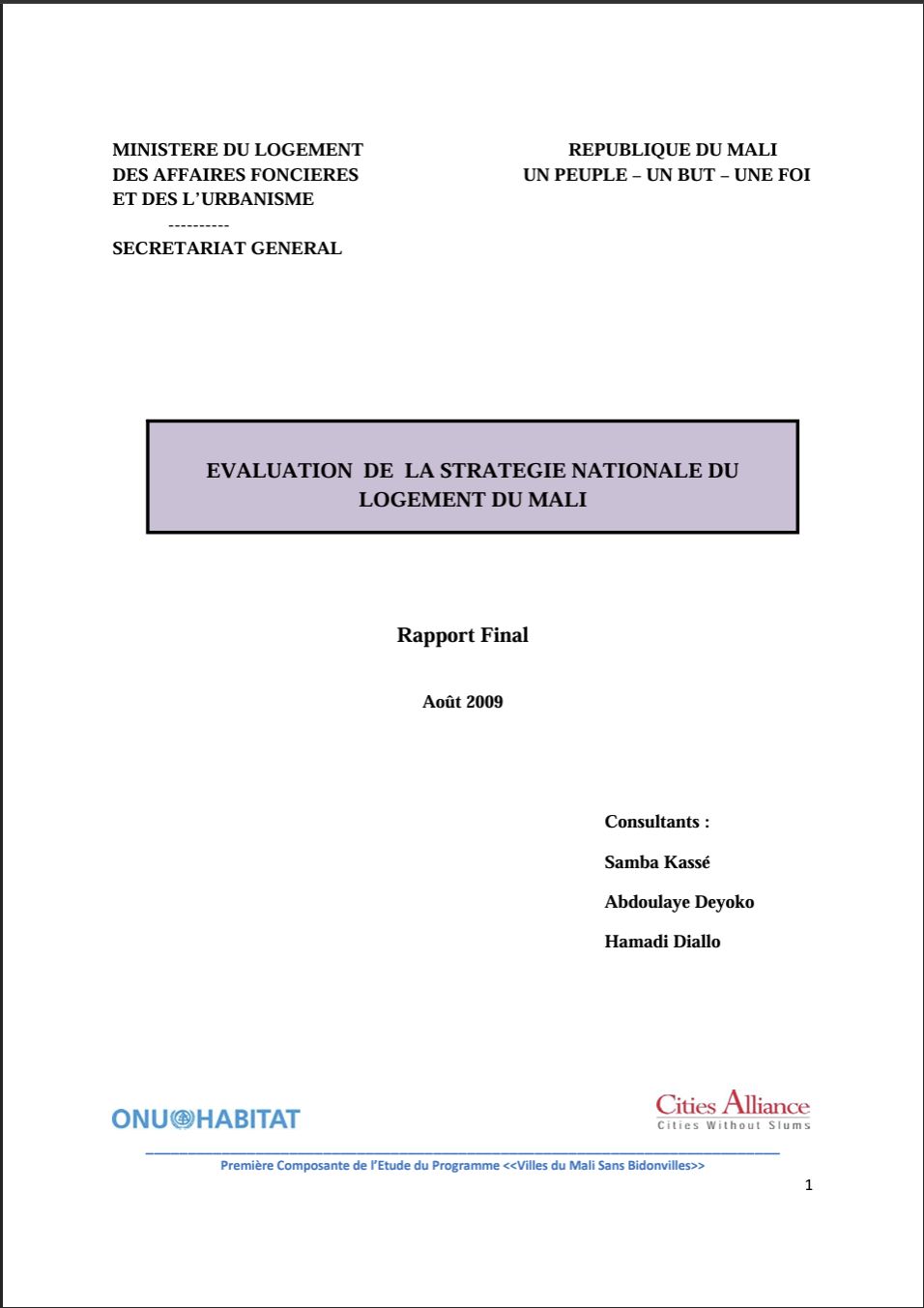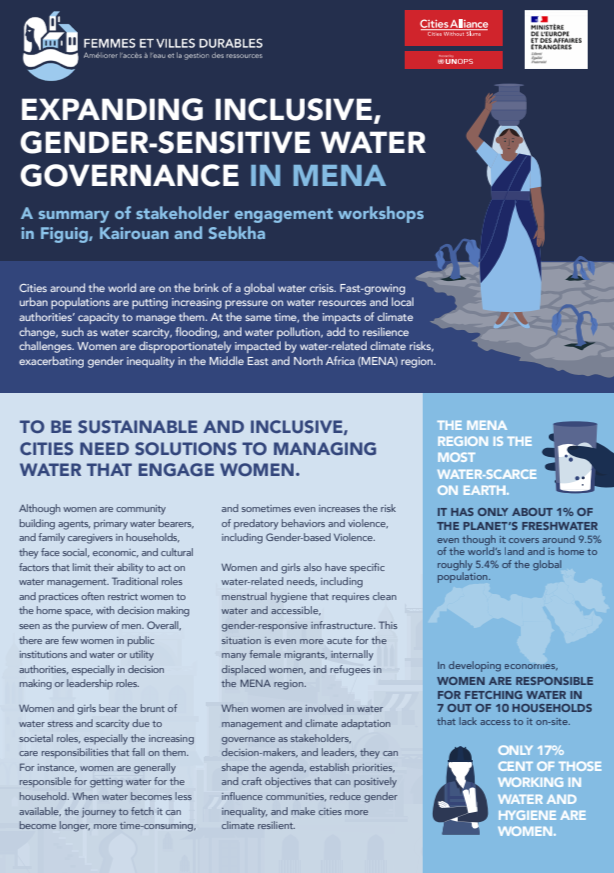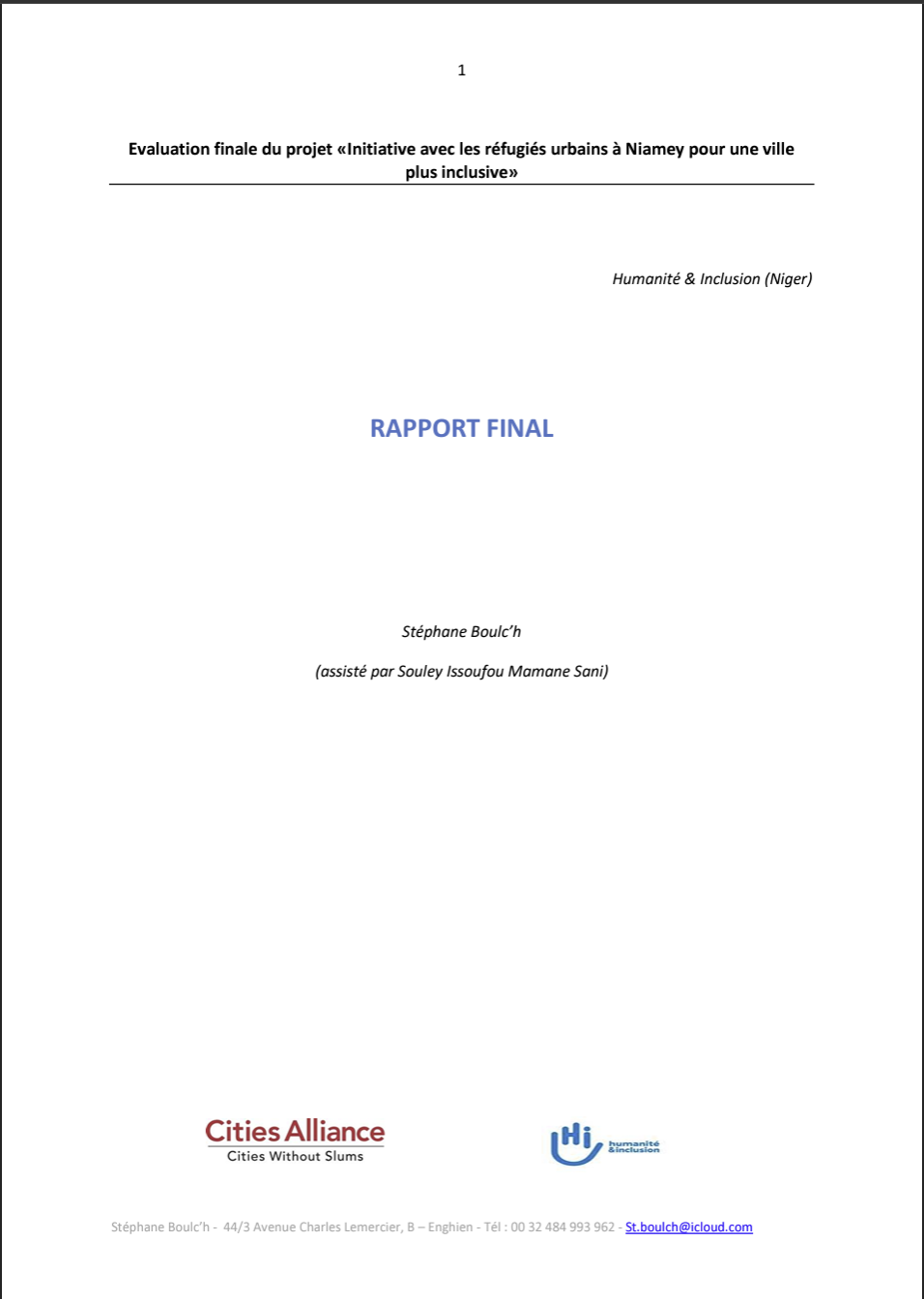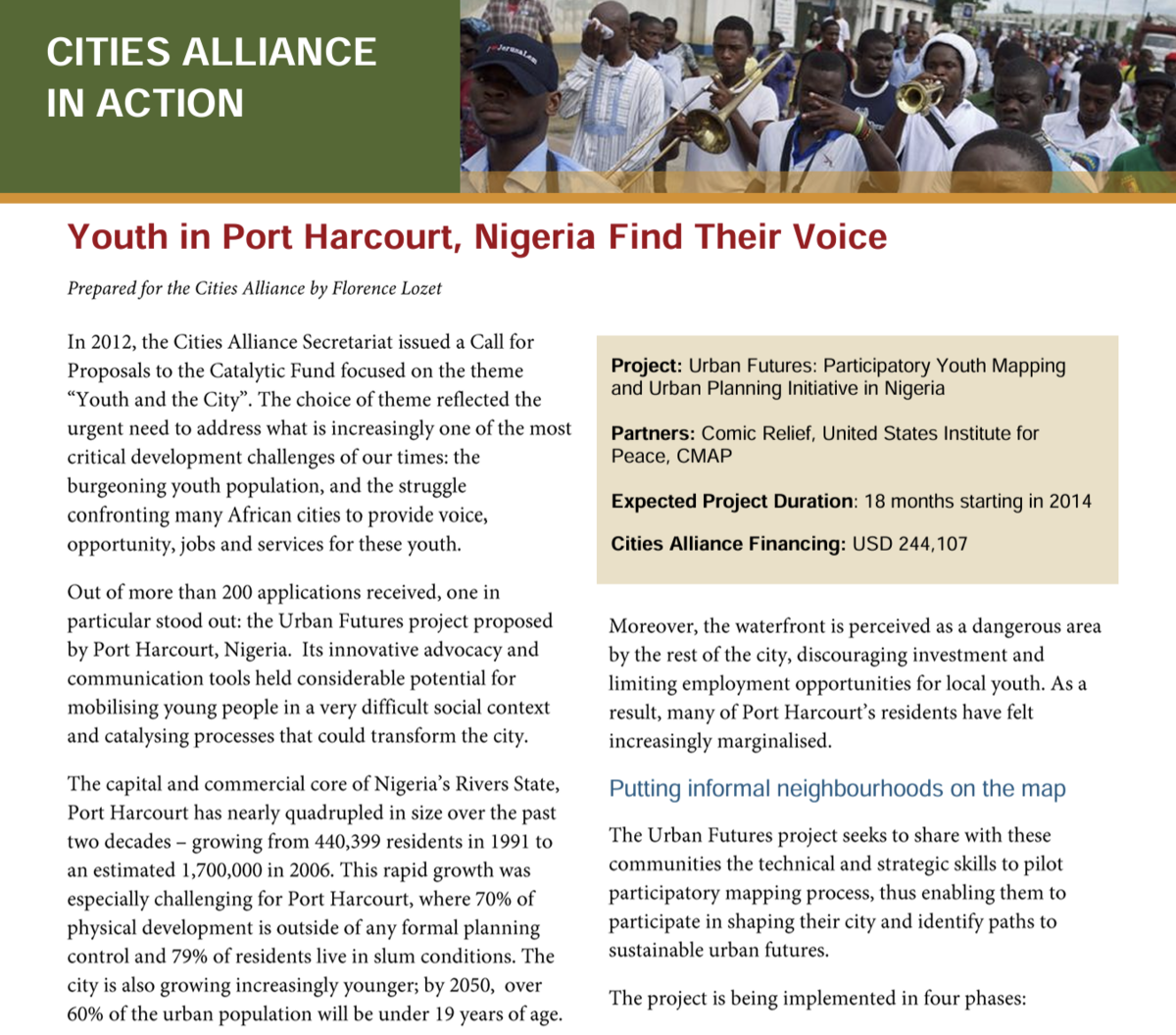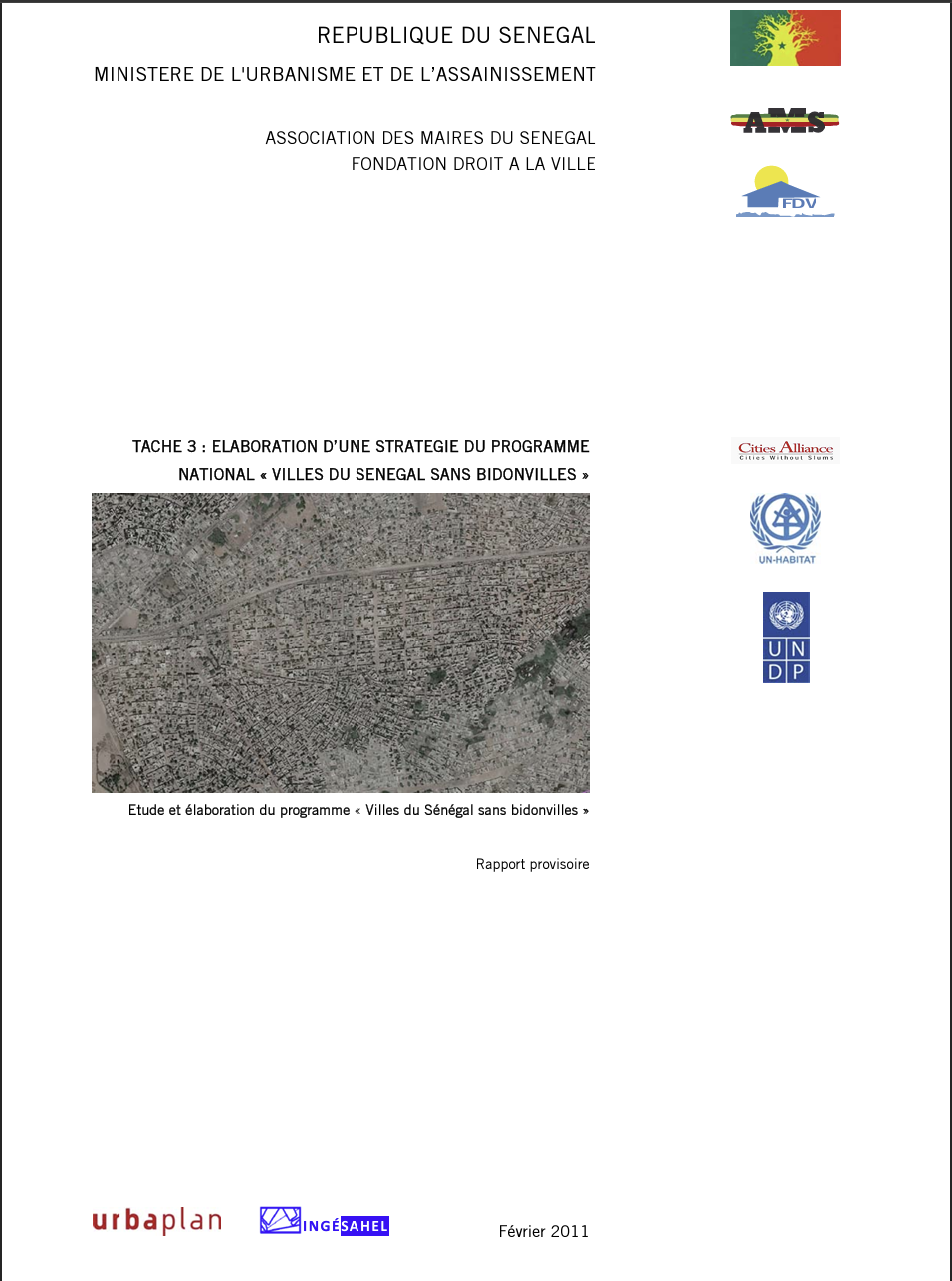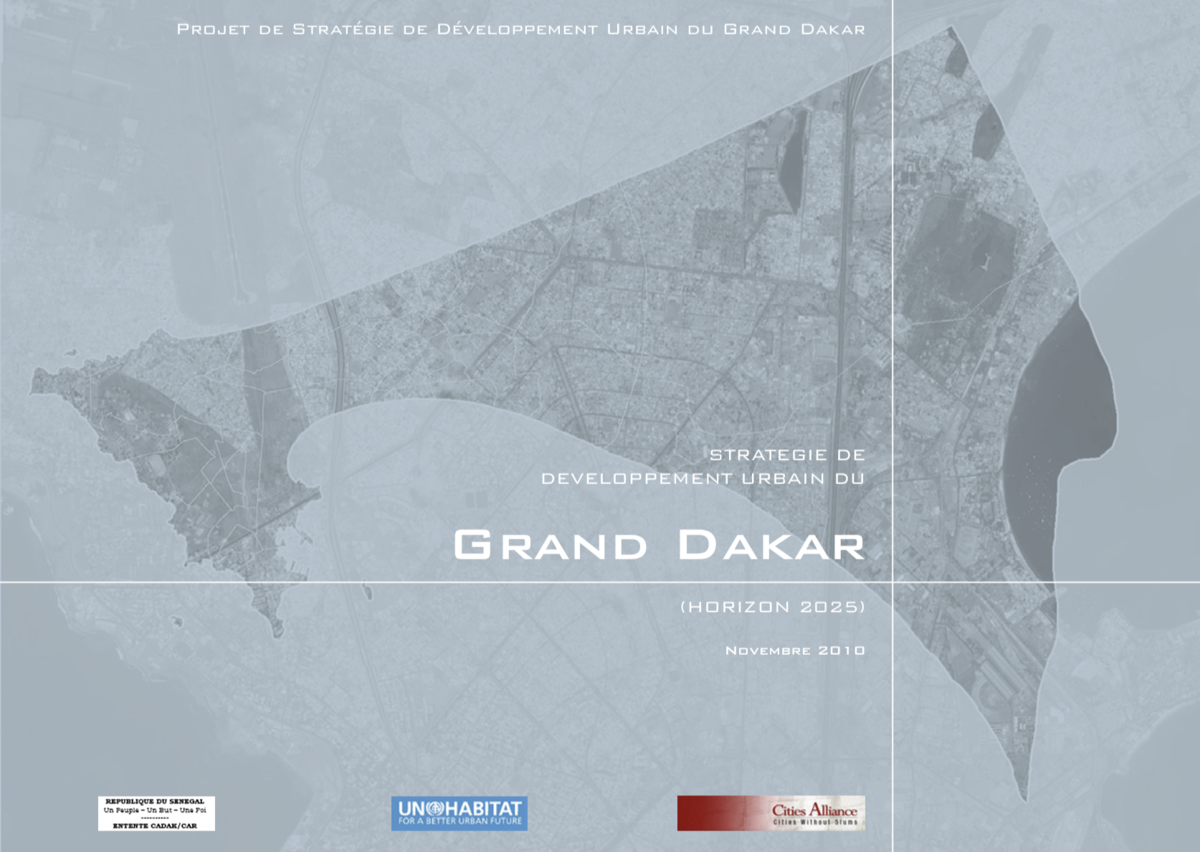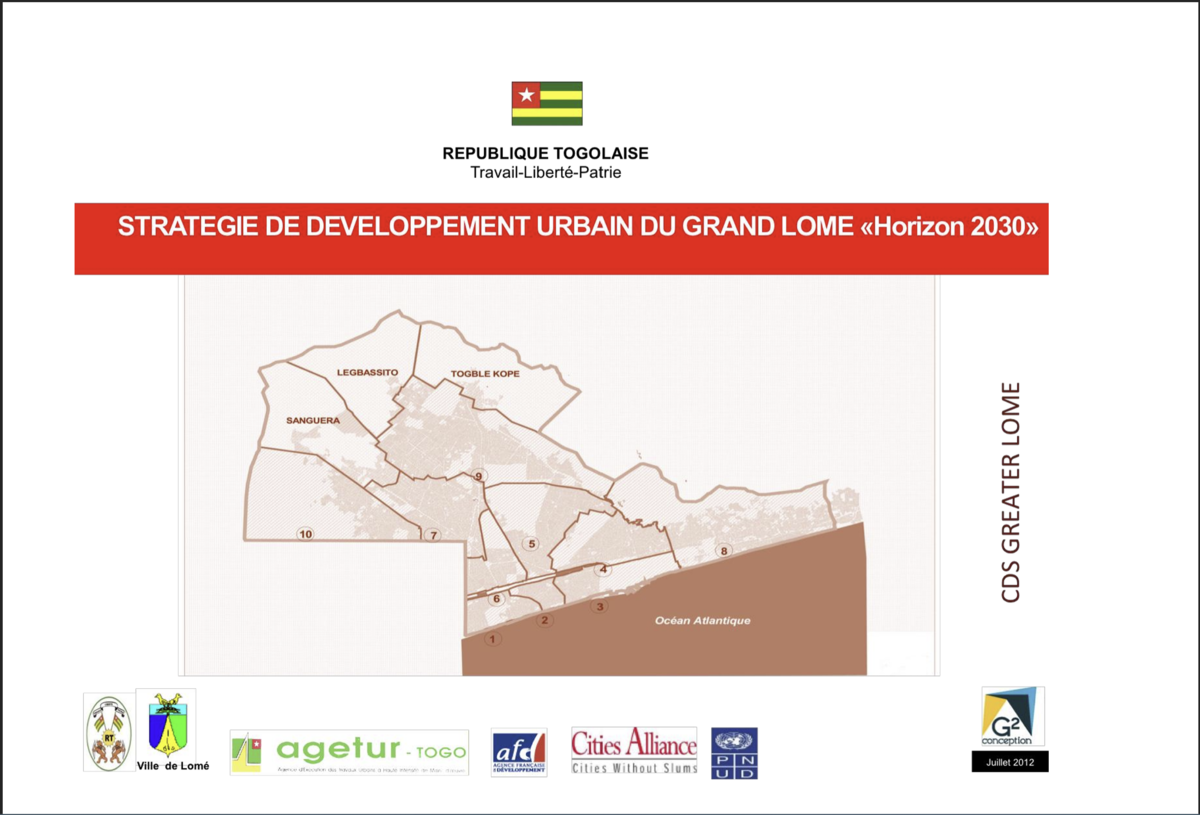Cities Alliance has an exceptionally rich portfolio in Western Africa, ranging from large-scale Country Programmes in Burkina Faso, Ghana, and Liberia, to youth-focused initiatives and working with communities to improve waste management and public health.
In Mauritania, the Women and Sustainable Cities programme is strengthening women’s leadership in managing urban water resources and applying Cities Alliance’s Her4Water toolkit to assess women’s vulnerability to water scarcity and engagement in water governance.
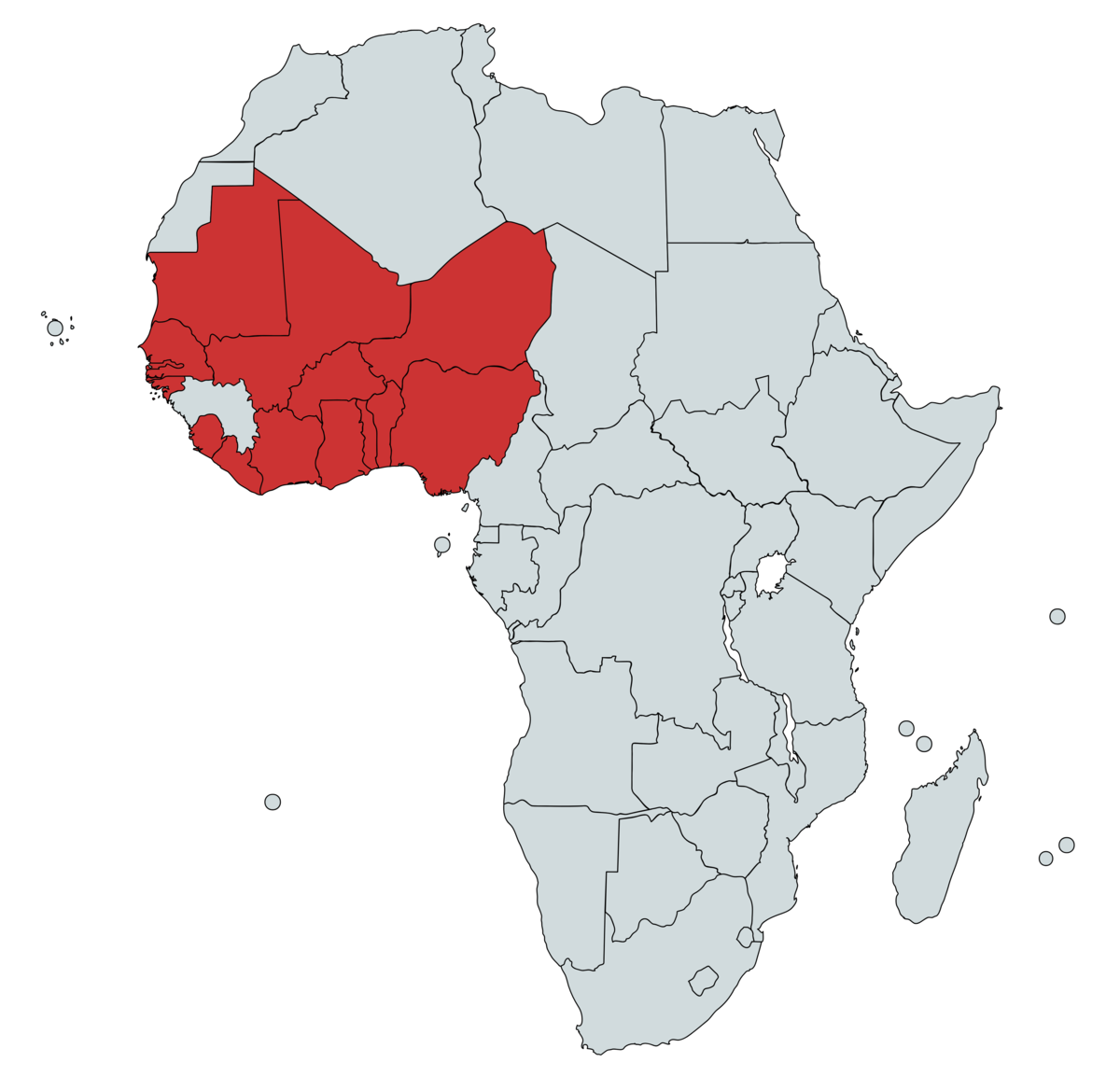
Benin and Guinea-Bissau
This project (2006-2010) established a partnership between Cities Alliance, Greater Cotonou, and the government of Benin to formulate an urban development strategy for Cotonou and two of its satellite cities (Semé-Podji and Abomey-Calavi).
It produced a diagnostic study that provided local officials and residents with a better understanding of the strengths, weaknesses, threats, and opportunities of their cities, enabling them to evaluate planning policies, urban management, and urban governance.
In addition, consultations with citizens, civil society, municipal councils, government officials, and local decision makers ensured that the resulting urban development strategy was developed through a participatory process.
The project achieved the following results:
- Development of local partnerships and strengthening of capacity of local communities
- Identification and better understanding of major metropolitan challenges and improved capacity of local authorities for urban management and governance
- Sustainable urban development that also addressed environmental concerns
- An agreement among the mayors of the three cities to establish an inter-communal body for cooperative management of the agglomeration’s local development
During its development, the project attracted interest from two leading development partners in Benin, AFD, and UNDP, leading to a strategic partnership.
AFD financed a study mission and experience exchange for representatives of the three cities (Abomey-Calavi, Cotonou, and Seme–Podji) to Dakar, Senegal, and Sfax, Tunisia. AFD also agreed to support the Priority Action Plan and mobilisation of resources to implement priority actions.
UNDP facilitated and supported the national validation workshop for the Urban Development Strategy and agreed to support the implementation of an action plan.
This initiative, funded through the Cities Alliance Innovation Programme, helped citizens in Bissau’s underprivileged neighbourhoods access information on basic services. It also sought to create links between public authorities, private actors, and citizens. Within the neighbourhoods, three one-stop shops were established in Community Development Centres to provide information and guidance on educational and health services, vocational training, and economic opportunities.
Valuable partnershipswere created through activities with the communities, including sensitisation and awareness activities, garbage collection, and “City Days” which facilitate mutual understanding and dialogue between communities and officials. The project has led to a significant increase in citizens’ awareness of their rights and duties.
The project's success enabled the organisation to secure follow-up funding from the European Union, allowing project activities to continue and additional one-stop shops to be created.
Burkina Faso
The Burkina Faso Country Programme (2012-2016) was a partnership initiative undertaken by the government of Burkina Faso and its support partners to align urban development efforts at the national, city and community levels.
It was the first Cities Alliance Country Programme in francophone Africa, and part of the original five Land, Services, and Citizenship Country Programmes funded by the Bill & Melinda Gates Foundation.
The Country Programme aimed to:
- Support the Government of Burkina Faso’s efforts to implement national housing and urban development strategies;
- Build the capacity of cities to strategically manage urbanisation;
- Empower and strengthen community organisations to actively engage in city development and national policy debate; and
- Focus on primary cities (Ouagadougou and Bobo-Dioulasso) and secondary cities (Dori, Dedougou, and Tenkodogo).
The programme is widely viewed as a success and has been recognised within Burkina Faso as influential at all three levels (national, local and community).
The Prime Minister’s office, which audits projects undertaken by the government of Burkina Faso, evaluated the Country Programme and gave it the highest possible ratings for results, financials, and compliance, among others.
According to the evaluation, “The Urban Country Programme for Burkina Faso has been one of the [Ministry of Housing and Urbanisation] programmes with a high execution rate that should be commended. It scored 42.24 out of 50.”
The strength of the partnership among the local implementing organisations and their understanding of the country’s context was a very important factor in the success of the programme. These partners are the Ministry of Housing and Urban Development, the Association of Municipalities of Burkina Faso (AMBF), the Burkinabé NGO Laboratoire Citoyennetés, and UN-Habitat.
A framework for urban development
Cities Alliance worked with the Ministry of Housing and Urban Development to create an urban component (the Programme de Développement Urbain) in line with Burkina Faso’s national development strategy (Plan National de Développement Economique et Social). This component will serve as the guiding framework for the country’s urban development.
National and municipal urban forums
Over the course of the Country Programme, municipal urban forums were held in the participating secondary cities of Dori, Dedougou, and Tenkodogo, and two national urban forums were held in Ouagadougou and Bobo Dioulasso.
The partners and urban development stakeholders acknowledged these forums as effective platforms for consultation towards inclusive urban policy, planning and governance. The forums have had concrete results beyond serving as platforms for dialogue for all stakeholders.
For example, forum discussions identified the existence of various disparate city planning tools as a priority issue for city management in Burkina Faso. Participants decided to consolidate them into a single, harmonised planning tool, which was piloted in Tenkodogo. The pilot was very successful, and the national government is now seeking to scale up the practice of harmonising planning instruments to other municipalities of the country.
Community infrastructure projects
In partnership with UN-Habitat, the local NGO Laboratoire Citoyennetés mobilised and organised communities and strengthened their capacities to manage community development projects.
The communities were then funded to implement their identified priority infrastructure projects. In all cases, there is a legal agreement between the municipalities and the communities that gives the communities significant control over small infrastructure projects.
The projects brought considerable dynamism to the communities, which are now better able to organise themselves and are recognised by local authorities; some communities have even established offices within the municipal buildings.
Neighbourhood management committees have been established and are very influential, deciding which projects will be undertaken in their neighbourhoods. Laboratoire Citoyennetés is in the process of producing a report on the community projects that documents the main lessons learned.
Greater Ouagadougou sought to undertake a city development strategy (CDS) to develop the local economy and improve basic urban services and infrastructure for its underserved areas.
In alignment with its priorities on security of tenure and urban governance, this project (2006-2010) sought to develop a local development strategy for implementing the Millennium Development Goals.
It had several components: Build partnerships for the formulation of a CDS for Ouagadougou; ensure coherence of effort with the national urban investment strategy and donors’ programmes and projects; and design an inclusive CDS for urban economic development, integrating a programme for upgrading basic infrastructure in deprived areas.
One of the important results of the project is the setting up of committees, at the city and district levels, for regular monitoring and evaluation of the implementation of the Greater Ouagadougou CDS. The committees meet twice a year.
In addition, development partners including the World Bank, UNDP, and AFD were fully engaged during the CDS development. AFD started financing activities (Ouagadougou central market, car parks, and basic urban services) as follow-up investments of the CDS.
This project (2003-2007) supported CDSs and local Poverty Reduction Strategy Papers (PRSP) for three secondary cities in Burkina Faso: Bobo-Dioulasso, Banfora, and Ouahigouya.
It had four components:
- Identifying the main economic activities and major operators to calculate the value of the local assets and the necessary resources for its maintenance, drawing up local economic accounts, and assessing the exchanges between city and rural area
- Drawing up a local development plan for the revitalisation of the local economy
- Establishing a sustainable dialogue framework among local stakeholders for more participatory local management
- Determining a replication framework and strategies at the national level
The interventions in the three secondary cities of Bobo-Dioulasso, Banfora, and Ouahigouya made it possible to capitalise on important lessons at the national level, particularly on the issue of mobilising local resources and financial transfers from the state to local authorities.
The CDS initiatives in the three cities showed a low rate of levy on local economies; less than 1 CFA franc collected by each of these municipalities on 100 CFA francs of wealth produced. One of the causes of this low collection was due to no property tax in Burkina Faso.
They also revealed that Burkina Faso is one of the rare countries in the region where there is no subsidy system for local authorities.
Côte d'Ivoire
This project (2019-2020) provided funding to develop and pilot an open-source software application that speeds up the issuance of permits for the occupation of public space for informal vendors and small businesses in Côte d'Ivoire. It was implemented by Association 3535.
The open-source web application, eServices Techniques, is free for municipalities that want to digitize processes for obtaining and renewing occupancy permits. It facilitates access for informal vendors and small businesses to public spaces in the Municipality of Cocody (part of Abidjan, the economic capital of Côte d’Ivoire) and promotes a more diverse and inclusive use of these spaces, thus contributing to livelihoods, especially of poor inhabitants.
The platform’s key functionalities are modeled after the existing steps in the process to obtain a permit: the application allows a vendor to apply for a permit online and schedule an appointment date for a municipal technical services agent to visit the desired public space site.
The application also enables municipal technical services agents to write up their reports. The vendor can also receive a pending permit confirmation through the web application, as well as make a fee payment by mobile money or other means.
During the pilot phase, the application enabled 140 small vendors to make online requests to obtain an occupancy permit.
On average, the processing time of requests has significantly decreased, from 8 weeks to 22 working days. The municipality is contemplating using the application on an ongoing basis.
The web application is freely downloadable for other municipalities.
This project was funded through the Innovation Programme's Secure Tenure in African Cities: Micro Funds for Community Innovation Call for Proposals in 2019.
Funded through the Cities Alliance Innovation Fund, this project (2016-2017) fostered social inclusion of migrants in Yopougon, one of Abidjan’s most disadvantaged neighborhoods, to support migrants in playing a role in the urban growth of their city.
While the population of Yopougon may have their political and social differences, they all love sports, which bring together youths of all nationalities, origin, and sex, playing within a set of rules and learning values such as tolerance, team spirit, fair play, and solidarity.
This pilot project aimed to tap into the intrinsic positive characteristics connected to basketball to foster social inclusion of young migrants in Yopougon. It intended to enhance their mental and physical well-being and simultaneously create a forum of exchange and dialogue among different cultures. Youths also learned the importance of taking care of common spaces, like the game field and surrounding areas (plastic and garbage free zones).
The project worked with three schools and one club in the neighborhood. Special consideration was paid to the challenges that young migrant girls face, and activities were carried out to ensure their engagement in the project.
It was sponsored by Agence française de développement (AFD) and implemented by the International Organization for Migration (IOM).
This project (2012-2014) undertook a study and activities designed to enable local and national authorities and their partners to implement policies on slum upgrading in the 13 municipalities of Abidjan.
The activities included:
- Surveys and assessments of the 13 municipalities, including mapping and creating a database for informal settlements
- 13 municipal slum strategy documents with concrete actions
- A district-wide, validated slum upgrading programme
- A communications strategy for the slum upgrading programme
- A guide for slum upgrading methodology
The project had several positive results:
- Renewed dialogue and cooperation between city managers and residents, as well as reinforced confidence and understanding
- Improved understanding of the slum phenomenon in Abidjan (up to the level of the presidency) and the importance of better planning and increased investment to transform slums.
- Attracted funding from AFD for new initiatives
- Aligned with existing projects by the World Bank and UN-Habitat.
Ghana
When the Ghana Country Programme (2011-2016) was first conceptualised, one of the key challenges it identified was the lack of a coherent urban agenda within the context of an increasingly urbanising population. Notably, the government had been slow in introducing policies that recognised the fact that over 50% of the country’s population lived in cities.
The programme started in 2011 with the objectives of supporting the capacity and resources available to the urban poor, strengthening the capacities of local governments to inclusively plan and manage urban growth, and supporting national and local policy dialogue to promote pro-poor urban systemic change.
It brought together a range of partners for activities at the national, city, and community levels. The lead partner is the Ministry of Local Government and Rural Development, primarily through its Urban Development Unit (UDU). The lead Cities Alliance member in the programme is GIZ, which had built strong links with the Ministry over a number of years.
Programme implementation focused on the Greater Accra Metropolitan Area (GAMA), with some activities having nationwide outreach. The main themes of the programme were urban policy, participatory urban governance, capacity development, and urban infrastructure.
National Urban Forum
With GIZ acting as lead member, the Country Programme supported the National Urban Forum to serve as a space for dialogue among all stakeholders and raise the profile of urban issues.
The Urban Development Unit (UDU) of the Ministry of Local Government and Rural Development (MLGRD) successfully convened seven Ghana National Urban Forums (as of 2016), which served as platforms for policy dialogues among key actors actively engaged in the country’s urban development process. The UDU was also very active in urban policy dialogues on international platforms, providing good visibility for Ghana.
National Urban Policy and Action Plan
A fundamental turnaround in Ghana was visible. President John Mahama openly championed the continental urban agenda and appointed a Minister of Local Government and Rural Development with a long history of involvement in urban policy and management issues.
Most significantly, in March 2013 President Mahama launched a National Urban Policy and Action Plan—the first comprehensive urban governance framework in Ghana’s history.
The implementation of the National Urban Policy was coordinated by the Urban Development Unit (UDU), with institutional capacity support provided by the Cities Alliance. The formulation, development and launch of both the policy and plan were supported from start to finish by GIZ through its Support for Decentralisation Reforms programme.
Community Projects
These pilot projects included an environmentally friendly Bio-Fil toilet system in Ashaiman, alley pavements with drains in settlements in Ashaiman and Ledzokuku Krowor, a community-led waste management project was implemented in AshMA and LaDMA, and a resource centre for Old Fadama.
A Community Investment Fund
An operational manual for a Community Investment Fund was developed and presented to the MLGRD. The Fund is expected to complement efforts on slum upgrading in low-income communities, especially in GAMA. It was inaugurated with $300,000 in seed funding for community groups. Urban poor communities and informal traders can take advantage of this fund to promote their entrepreneurial activities and participatory social development of communities.
A National Housing and Urban Advocacy Network (HUDNET)
The HUDNET was launched as a national advocacy platform on housing and urban development. It brings together various groups to advance the cause of sustainable, equitable urban development. The HUDNET has been used to lobby key decision makers at both the municipal and national levels to prioritise budgeting and resource allocation for pro-poor housing development. The aim is that Ghana’s national budgets will address needs of the urban poor with an increased allocation for the Ministry of Water Resources, Works and Housing.
Urban Advocacy Campaign
Another key activity has been the rollout of a robust national urban advocacy campaign with documentaries, radio, and social media. The campaign helped place Ghana’s urbanisation into the spotlight of policy making and change the mindset and behaviour of urban dwellers towards their environment.
The “Fixing the Urban Mess” documentary series was an exemplary product of this campaign. Following its success, a second round of 14 TV documentaries entitled Urban Diaries was launched in 2016, further reinforcing the collective understanding of urban issues.
Capacity Building and Training
Training for national government staff strengthened the institutional capacity of the Urban Development Unit (UDU) to promote Ghana’s National Urban Agenda. The Ghana Institute of Local Government Studies (ILGS) provided 12 training sessions for local government officials, carried out lectures and workshops, and produced training material on participatory urban governance, resilience planning, and metropolitan-wide governance.
This project (2016-2018) provided grant funding to C40 to develop city climate action reports that cover sustainable energy management in the context of broader climate change action plans through the application of the Climate Action for Sustainability (CURB) Tool.
Developed by the World Bank, CURB is an interactive scenario planning tool designed specifically to help cities act on climate change. It looks at sectors such as waste, energy, and transport, identifies mitigation options, and assesses which changes will bring about which results.
Cities Alliance provided funding to C40 to improve the tool’s functionality for informal settlements and apply it in Accra, Dakar, Dhaka, Quezon City, Quito and Santiago. The cities undertook GHG assessments, application of CURB, and city climate action reports.
In Accra, the project supported a Climate Change Mitigation Scenario Planning Workshop that engaged stakeholders to better understand the opportunities and barriers to climate change actions and develop emission reduction scenarios for the city.
The workshop was led by C40 and the Accra Metropolitan Assembly (AMA). It was part of a grant to C40 under the JWP on Resilient Cities for the City Climate Action Planning project and a longer engagement that C40 has with Accra to develop net-zero climate action plans by 2020. This workshop followed on a Greenhouse Gas Inventory workshop Accra held in 2017.
The outcomes of the workshop were used to refine the emissions reduction targets and the climate actions required to meet the objectives of the Paris Climate Agreement by AMA through its commitment to Deadline 2020.
The project was part of a partnership between Cities Alliance and C40.
The rapid growth of urban settlements in Ghana has not been matched by the corresponding increase in infrastructural and other services. This called for improved local government capacity for urban planning and management to cater to the basic needs of the dwellers in these urban areas.
The Ghana Municipal Finance and Management Initiative project (2005-2006) attempted to address this issue. As part of this preparatory assistance project, the Ministry of Local Government and Rural Development of Ghana, in partnership with key local, national, and international stakeholders, organised a stakeholders’ conference on municipal finance and management.
The project enabled the government of Ghana to sensitise and train local stakeholders and develop a plan for the successful implementation of a municipal finance and management programme in Ghana. It suggested improvements in the legal framework by proposing a draft Municipal Finance and Management Bill to the parliament.
The project also prepared an application for Cities Alliance funding for the identified initiatives in the plan, and selected district assemblies were identified for the pilot phase for implementation of identified initiatives.
A lot of enthusiasm has been generated at the central government level about the need to re-look at how to generate adequate financing for infrastructural projects at the local level. Many municipalities had become aware of their potential to mobilise internally generated revenues for infrastructural development. Various District Assemblies embarked on local revenue mobilisation initiatives and sought to be part of the initial pilot phase of the implementation programme.
The initiative mobilised investments for specific municipal projects and identified the four Metropolitan Assemblies (Accra, Kumasi, Sekondi-Takoradi, and Tamale), Tema Municipality, and selected District Assemblies for the pilot phase.
This project (2003-2004) supported the Kumasi Metropolitan Authority (KMA) in the preparatory phase for undertaking a city development strategy (CDS) for the metropolitan region of Kumasi.
The activities involved sensitising and training the local stakeholders to make them effective participants in the CDS process, developing capacity within the governments of Kumasi and the surrounding towns to lead and support the CDS process, and engaging the National Association of Local Authorities in Ghana (NALAG).
Instead of developing a proposal for implementing a CDS process, the KMA produced a draft CDS formulated through stakeholder consultations. Under the leadership of a new mayor, the local authorities led a participatory planning process and produced a draft document with an overall vision for the city’s future development and a profile of the city by sector, including a SWOT analysis and vision for each sector.
Liberia
The Liberia Country Programme (LCP) (2017-2021) supported the government of Liberia to deliver results aligned with the Sustainable Development Goals (SDGs) through an integrated, multi-level approach.
Despite the complexity of the implementation and the challenges of the local context, the programme delivered transformative change in Greater Monrovia, with lasting impact for the urban poor.
The programme's results include:
Fostering partnerships and a culture of dialogue underpinning urban development efforts. Through settlement and municipal forums, informal communities have space for participatory urban planning and policy-making at the national and municipal levels.
Improving access to water and sanitation for slum residents through the Community Upgrading Fund (CUF). This included the construction of 104 water kiosks, particularly relevant to mitigate contagion risks during the COVID-19 pandemic.
Establishing the Federation of the Liberia Urban Poor Savers (FOLUPS) to improve urban poor communities’ livelihoods and capacity to engage with authorities on city planning and service delivery.
Creating the Federation of Petty Traders and Informal Workers Union of Liberia (FEPTIWUL), a platform for engaging with government and city authorities on issues affecting informal workers.
Developing four key policy frameworks: National Urban Policy, Greater Monrovia Urban Development Strategy, Slum Upgrading and Affordable Housing Framework, and the Voluntary Gender Responsive Relocation Policy Guidelines, that contribute to counter the eviction and exploitation of the urban poor.
Developing and adopting the Slum Upgrading and Affordable Housing Framework through a shift in the approach of the National Housing Authority (NHA) towards meeting the needs of low-income residents.
Providing financial support to 121 infrastructure projects through the CUF, including water points, toilet facilities, schools, and community halls. The fund demonstrated the efficiency of community-conceived and implemented slum upgrading initiatives.
For more about the project, see the final evaluation.
In 2020, the Cities for Women Programme worked with the Liberia Country Programme team on a citywide approach to engage women in identifying priorities for planning interventions. The intervention comprised using quantitative data collection coupled with a participatory qualitative dialogue in the form of a workshop.
The results of this engagement informed the Greater Monrovia Urban Development Strategy and specific COVID-19 response actions in informal settlements. The consensus was that the Greater Monrovia area is not inclusive to women’s needs and that women’s issues are not prioritised. The findings were presented in a report and a video on Women Transforming Monrovia.
After the citywide consultation, the Cities for Women programme engaged with residents from three informal settlements - Doe Community, Clara Town, and Soko Town. Through the process, participants identified access to clean water as one of the main challenges for women in Greater Monrovia.
As a result, the programme provided advisory support to the Liberia Country Programme’s community water initiative with tools, an engagement plan, and a draft Gender Action Plan.
With funding from Sida, LCP began the construction of 15 water kiosks in the three communities, through its Community Upgrading Fund. Gender was mainstreamed at all stages of the process. Women from the community are managing the kiosks with the support of FOLUPS.
This project (2020-2021) financed climate adaptation projects in two Monrovia communities, West Point and King Gray Town, as part of the Liberia Country Programme's Community Upgrading Fund.
It aimed to help informal coastal communities build their resilience and better adapt to climate shocks. In the process, it is improving the livelihoods of women and men, from informal communities, working in the fishing sector.
The project was implemented by Cities Alliance with funding from the Swedish International Development Agency (Sida) and supported by the German Ministry for Economic Cooperation and Development, (BMZ), has provided local trade associations representing fishermen and fishmongers with freezers and ice makers powered by solar panels.
These tools allow them to store the fish safely. Members of the fishermen’s unions wishing to store their fish in the freezers must contribute money for the equipment’s upkeep.
The project was built on established community engagement processes that Cities Alliance introduced years ago. Through the Community Upgrading Fund, the local community has a direct say in which services should be improved, and what infrastructure would help the community the most, which leads to more inclusive approaches with local ownership
The initiative is helping to redress local gender inequalities too, as the majority of fishmongers in the area are women. Through the project, they can improve and sustain their livelihoods.
All the materials needed for the project were procured through UNOPS and placed in buildings within the two informal communities. The solar panels installed on the roofs generate enough power to run the fridges overnight through batteries.
This is important since the communities aren’t connected to local energy grids. To run and maintain the infrastructure, community members were trained through sessions jointly organised with GIZ engineers and technicians as part of a BMZ-funded GIZ project to support access to modern energy.
Implemented between 2015 and 2018 with funding support from Cities Alliance, the “Imagine Monrovia” project used innovative data collection methods to improve local government decision-making and development planning.
In a context where municipal staff had little capacity to work with data and new technologies, the introduction of new equipment and technical skills was urgent. The project provided GIS training to improve municipal data management capacities, local government decision making and development planning.
In addition, the project succeeded in collecting new data and compiling previously fragmented information on the city’s businesses and land use. While the project’s implementation was delayed due to changes in the city administration, it is expected that the local government will build on these new databases to improve decision-making on land use, revenue collection and the delivery of public services and goods.
This project was funded through the Innovation Programme's Know Your City 2014 Call for Proposals and implemented by Monrovia City Corporation (MCC) and the Liberia Institute for Statistics & Geo-Information Services (LISGIS).
When Ebola first began to spread in Liberia in 2014, there was denial at all levels – high-level government officials refused to acknowledge its existence, the medical community did not understand how to deal with the virus, and the city’s residents were not reached with awareness campaigns or messages urging them to take preventative measures.
As the death toll mounted, reality finally set in. Doctors and medical personnel flocked to Monrovia, home to 40% of Liberia's total population. Ambulances were everywhere and Liberia was virtually cut off from the rest of the world. It was the worst Ebola outbreak in Liberia’s history; some 4,000 people died of the virus, many of them women due to their traditional role as caregivers.
When the Ebola virus struck, Cities Alliance supported the restructuring of the Improved Primary Solid Waste Collection in Poor Communities of Monrovia (IMPAC) programme to respond to Ebola risk in communities by providing financial support to Slum Dwellers Association of Liberia (SLUMDAL), an affiliate of SDI.
The IMPAC project worked closely with SLUMDAL at the community level to raise awareness of the disease and hygiene promotion to prevent infection. Waste pickers who initially focused on collecting waste were mobilised as part of the community response to the devastating epidemic.
The turning point of EVD in Liberia came when the government implemented a decentralised approach to curb new infections. It was ultimately the flexibility shown by the Liberian government in adapting their response to the crisis that helped turn the tide in the city on infections.
Operation Stop Ebola, launched by Monrovia City Corporation (MCC), received support from the city’s waste pickers who were trained on the community Ebola prevention response.
Community representatives were trained in how to raise awareness of Ebola at the community level. They went door-to-door with materials in hand, explaining the virus and how to take preventative measures. Slowly, new infections began to decline, and in May 2015 Liberia was declared Ebola-free by the World Health Organisation.
The restructured IMPAC project is a good example of how city-community partnerships can deliver essential services to poor communities in resource-poor situations, including informal high-density townships with substandard access to basic services, such as the West Point community.
Cities Alliance produced a report that documents the delivery model of the IMPAC project, including how the city-community partnership established under the project was leveraged in the fight against Ebola.
The Monrovia City Corporation’s Improved Primary Waste Collection in Poor Communities (IMPAC) project (2010-2014) was part of a package of grants made to African municipalities through the Global Project for Inclusive Municipal Governance (GPIMG), funded by the Bill & Melinda Gates Foundation.
The broad objective of the five GPIMG grants (which also included grants to the cities of Cairo, Lilongwe, Harare, and Luanda) was to improve the inclusion of the urban poor in municipal processes, thereby increasing the services delivered to the poor and the livelihood opportunities made available to them.
IMPAC’s work focused on using solid waste management (SWM) as a community organising platform that allows for participatory decision making in local government processes. IMPAC aimed to contribute to the reduction in uncollected waste, creation of jobs for the urban poor, better health and environment, and improved participation of the poor in government processes.
Before Liberia’s devastating civil wars, waste was collected door to door. During and after the 11 years of intense conflicts, however, the city struggled to provide adequate waste infrastructure and collection services due to the large influx of migrants to the city seeking refuge.
The IMPAC programme improved the situation considerably. Monrovia’s model allowed private primary waste collection operators (CBEs) to bid for contracts to operate in specific communities.
The CBEs formally employed poor people (often informal waste pickers) to collect garbage from households for a small fee, remove the resalable recyclables, and deposit the waste at transfer stations for secondary collection.
This initiative eventually laid the foundation for the Cities Alliance Liberia Country Programme.
Mali
This project (2008-2013) supported the development and implementation of the Cities of Mali without Slums Programme, aimed at reducing and upgrading informal settlements in the District of Bamako and other municipalities of Mali.
It was implemented by the Ministry of Urban Planning and Housing of Mali and UN-Habitat.
The outputs included a revised national housing strategy and assessments of slums in Bamako, Sikasso, Kadiolo, Kayes, Nioro du Sahel, Kita, Koulikoro, Segou, and Dioila. The project also provided capacity building on participatory planning and budgeting using tools developed by UN-Habitat and adapted to the African context.
Mauritania
The Women and Sustainable Cities programme aims to strengthen women's leadership in the decision-making and management of scarce urban water resources in the MENA region.
Launched in May 2023, the 2.5-year pilot will be implemented in collaboration with local governments and feminist organisations in Sebkha (Mauritania), Figuig (Morocco), and Kairouan (Tunisia).
By enhancing the capacities of local authorities and civil society, the programme promotes gender-responsive design and implementation of urban water management policies and projects. Collaborating with women and local organisations, the programme implements pilot projects in urban areas to improve women's access to water and enhance sustainable water management.
Sebkha is a municipality characterised by large numbers of poor families with little connection to the city water network and a high percentage of women-headed households.
The settlement is located in a low-lying area of Nouakchott, and water never drains completely. During the rainy season, stagnant water puts residents at risk of disease from water-borne bacteria and prevents women from accessing standpipes. It also reduces mobility in the community and makes it more difficult for street vendors, many of them women, to earn a living.
The community has already completed stakeholder workshops to begin the process of engaging women in discussions about water management, laying the foundation for future initiatives that prioritise the well-being of both women and the broader community in the pursuit of sustainable cities.
Opportunities identified in the Sebkha workshops include a viable sanitation system to improve drainage; raising awareness of hygiene, wastewater, and waste management; working with local authorities to strengthen flood management; and creating water delivery plans for landlocked areas.
In Sebkha, women’s participation in decision-making in water management is low, even though many households are headed by women, who are responsible for the family’s water needs and the first to be affected by water issues. Women in Sebkha have expressed a desire to be more involved in decision-making.
The programme is funded by the French Ministry for Europe and Foreign Affairs (MEAE), under its Solidarity Fund for Innovative Projects (FSPI). It has also been designated as a Support Fund for Feminist Organizations project by the Ministry and the Agence Française de Développement, enabling feminist civil society organisations to advance their vision of gender equality.
With Cities Alliance funding, the NGO GRET pioneered a systematic approach to youth employment by establishing one-stop centres and cooperation with local authorities, companies, and civil society organisations. The centres were so successful that the concept was integrated into a Mauritanian government national vocational training programme for youth.
The project (2013-2015) was funded through the Innovation Programme as part of its Youth and the City Call for Proposals.
This project (2000-2001) supported the Mauritanian central government and the municipalities of Nouakchott and Nouadhibou to improve living conditions in slums by consolidating the institutional aspects of urban and land management, consultation, and institutional capacity building.
its main outputs were an assessment of the different administrations responsible for urban and land management and the preparation of a report on Capacity Building for Management and Institutional Measures to accompany a Programme for Urban Development.
The report was designed to be an effective tool for administrators, the Urban Programme Implementation Unit, and communities to help increase community participation in urban planning, provision of urban services, and urban and land management.
The project's approach of preparing a CDS parallel to the Urban Development Programme (a World Bank-financed ten-year programme) was considered very innovative as it avoided long delays. This timeliness helped build on the momentum of the CDS process and create a sense of ownership of the project. The recommendations in the CDS were incorporated into the design of the Urban Development Programme.
Niger
Located between Sub-Saharan Africa and the Maghreb, Niger has become a transit country for an increasing number of migrants from West and Central African countries seeking access to Europe. Many of these migrants are turned back in the Maghreb, and return to Niger.
This activity (2017-2018) aimed to improve refugees’ access to basic services and social inclusion in the city of Niamey. It sought to fully engage the refugees, 60% of whom are women, in the implementation of the government of Niger’s National Social Policy and improve their access to social protection and basic services.
It had several components, including:
- Contributing to the implementation of centres of social promotion that will facilitate the access of the migrants to basic services and help them to participate in the social mobilisation in Niamey.
- Increasing access to protection services and contributing to the development of the new social protection policy that contains initiatives for refugees, in particular children and women.
- Strengthening refugees’ access to education and basic public services, with a focus on women and children.
This activity was funded through the Cities Alliance Innovation Programme, implemented by Fédération Handicap International, and sponsored by UNICEF, AFD, and the French Embassy in Niger.
This project (2004-2006) translated the national poverty reduction objectives and the goals of the national Poverty Reduction Strategy Paper into specific poverty reduction objectives appropriate to the specific context of each of the two cities.
It also involved preparing city development strategies for Dosso and Maradi in collaboration with the Association of Cities and Communes of Niger. This included identifying urban development constraints and institutional bottlenecks.
Both CDS exercises took a similar shape. In the first stage, the team built an information base consisting of data on socio-economic status of households throughout the city, the level and quality of poverty as evidenced both through information about incomes, employment, urban services received, housing quality, demographic information, and land tenure.
The household surveys were complemented by over 40 focus groups, meetings with local chiefs, and extensive discussions with the technical personnel in the towns.
Once the data had been statistically aggregated, the results were presented to local workshops, to consider their validity in terms of the findings on the state of urban poverty in both towns, the description of the urban economy, and their analysis of the institutional framework. Based on these meetings, the “diagnostic” element of the strategic process was completed and a document was prepared for each town.
The goal was to develop and disseminate a national urban development strategy based on the CDS experience of Dosso and Maradi.
The finished plans were a point of pride for the mayors involved in the project and served as a basic platform for other planning exercises that involved both national and international agencies.
Nigeria
With a population estimated up to 23 million, Lagos is the largest city in Africa, due in no small part to steady migration from across Nigeria and beyond. Despite a century of ethnic and religious coexistence in Lagos, recent “megacity development” has prioritised the wealthy and used non-citizenship to justify excluding migrants and immigrants in informal settlements.
Discrimination is also entrenched in government offices and the judiciary, where migrants who attempt to apply for title documents are often denied and wealthy families make customary land ownership claims to huge swaths of the city – relegating anyone who migrated to the city within the last century to permanent insecurity of tenure.
This project aimed to identify and tackle the challenges facing migrant and immigrant populations in the African megacity of Lagos by scaling up outreach to slum communities that are largely populated by migrants and immigrants, helping them organise and gather data, and then engage with policymakers and government agencies to build a more inclusive Lagos.
Activities included:
- Producing comprehensive, community-generated data on migrant demographics and experiences in Lagos slums and the informal economy;
- Identifying key policy concerns for migrants in Lagos slums and participatory development of an advocacy agenda;
- Providing training and ongoing support for a network of migrant community-based paralegals in Lagos slums so they can provide grassroots legal services to migrants; and
- Engaging in strategic advocacy and litigation led by migrants in the slums to make Lagos a more inclusive city.
This activity was sponsored by SDI and implemented by the Community Legal Support Initiative.
From 2015-2017, the Cities Alliance Innovation Programme supported the youth-led participatory mapping component of CMAP’s Human City project – a community-driven media, architecture, urban planning and human rights initiative in Port Harcourt, Nigeria. Through mapping, a network of young people from the city’s marginalised communities gather and share information about their neighbourhoods, collaborate with urban planners, and literally put themselves on the map.
This initiative was implemented by The Collaborative Media Advocacy Platform (CMAP), which shares skills and technologies that allow people in marginalised urban communities to organise more effectively, plan more appropriately and reach the city with their voice and vision.
CMAP is empowering Nigeria’s slum dwellers through community radio and media training to raise their voices and engage with the local government. CMAP has become a central partner for informing the Cities Alliance’s expanding work on forced evictions. The Cities Alliance has supported CMAP in applying for further funding possibilities and is looking to leverage its network, tools, and experiences for long-term engagement in the country.
Senegal
Funded through the Innovation Programme, this project (2014-2016) mobilised youth towards rehabilitation of their neighbourhood and trained through community development projects. Many of the established structures and positions were integrated into the municipality’s social work, such as the community security guards and a youth office, which are now run and financed by the local authority.
On 15 January 2015, the city of Dakar, Senegal issued its first-ever municipal bond as part of its model for mobilising infrastructure finance from domestic capital markets.
It was a seven-year, tax-exempt bond amounting to US$40 million at an offer rate of 6.6%, paid semi-annually. It aimed to finance the relocation of existing city markets to a central built marketplace, which was expected to provide improved livelihood opportunities for about 3,000 street vendors.
This bond issuance was the first municipal bond in Senegal and West Africa. It was part of a strategy developed by the city leadership to decongest Dakar’s streets and provide improved commercial space for street vendors, which make up a high proportion of the city’s informal economy.
In preparation for the bond issuance, the city formed the Dakar Municipal Finance Programme in 2011 to strategically position itself as a creditworthy issuer in the regional market, with the support of the Bill & Melinda Gates Foundation, PPIAF, USAID, AfD, and managed by the Cities Alliance.
This project (2007-2012) supported the Senegalese government and the Association of Mayors to develop a national Cities Without Slums “Villes sans Bidonvilles” Programme.
The project aimed to develop a 10-year action plan to upgrade existing slums and prevent the development of new slums within the framework of the national campaign for secure residential and property tenure and urban governance.
It also sought to identify opportunities for mobilising public and private investment to realise the plan's objectives, build the capacity of local authorities in the prevention and improvement of substandard housing, strengthen the urban development observatory, and document best practices of the Senegalese Cities Without Slums programme.
The diagnostic and analytic reports resulted in a more in-depth knowledge of the urban phenomenon (history, trends, current status, mapping) among authorities responsible for the project's design and implementation.
The project also helped create awareness of the evolution of slums (e.g., factors relating to rural-urban migration) and the economic and social impact of the slums on local, regional, and national frameworks and strategies.
This project (2006-2010) supported the cities of Dakar, Guédiawaye, Rufisque, Pikine, Bargny, Diamniadio, and Sébikotane to design and implement a pro-poor, sustainable metropolitan strategy for Greater Dakar.
The project developed a CDS for metropolitan Dakar using a participatory process. The strategy included a diagnosis of emerging urban issues, production of a “Geo-Dakar” report, a 10-year action plan with specified priority projects and programmes, development of short and medium-term action plans with financial strategies for implementation, and training of local stakeholders.
Residents' participation through their local leaders was effective, and committees to follow up on the CDS were set up in all local territories (cities and municipalities).
Sierra Leone
This project (2014-2017) built on a successful project implemented by Sierra Leone YMCA and YCI in Freetown from 2007-2012 and expanded the work into new communities in Freetown.
Its activities included:
- Vocational, entrepreneurship life-skills training, and post-training inputs to young people
- Support for slum dwellers to establish savings/credit groups and advocate for improvements in their communities
- Strengthening the capacity of young people to engage with local decision-makers and participate in slum upgrading initiatives
- Building the capacity of Freetown City Council in terms of slum upgrading and development approaches that are inclusive and pro-poor.
The project was funded through the Innovation Programme's Youth and the City Call for Proposals.
This project (2008-209) supported the government of Sierra Leone to begin formulating a strategy to address the proliferation of slums and informal settlements in Freetown after the end of armed conflict in the country.
The activities included producing an outline for a slum and informal settlements strategy, an assessment of the systemic issues causing slum development and obstacles to sustained urban conditions in low-income areas, the technical information required to guide the full-fledged strategy process and document formulation, and multiple sessions and consultations with stakeholders.
The project kick-started the slum policy and strategy formulation processes; until this point, Sierra Leone and Freetown did not have a coherent policy or strategic approach to urban slums. Public sector intervention was confined to sporadic slum clearance, as part of wider sectoral improvement projects, or in response to specific local crises such as landslides, flooding, and fire.
It produced a Slum Strategic Management Agreement that lays out a set of guiding principles (policies) that embrace:
- Integrating slums into the fabric and development imperatives of the city
- Delivering urban services to all slums
- The importance of households and community participation in their management;
- The right to inalienable tenure to property
- Engaging slum communities in the planning, management, and financing of local development, while maintaining their cultural identities
It enumerates a set of envisaged activities based on participatory governance, transparency, and accountability. This includes forming an independent professional and technical Management Committee to oversee the upgrading and, where necessary, relocating slums.
Developing a strategy outline supported by key stakeholders as a result of an open, consultative approach was an indicator signaling a successfully implemented activity.
By the end of the initiative (three workshops and related events), the government seemed to have accepted that slum dwellers should participate in the process of designing the future skyline of Freetown and that sidelining them would set up the implementation of the master plan for a failure.
Togo and The Gambia
In Banjul, in partnership with UNOPS Gambia office, Cities Alliance implemented a variety of participatory processes to ensure that women were able to share their experiences of the city and voice their concerns and wishes for the new city plan (the Greater Banjul 2040 Plan).
UNOPS is currently supporting the Ministry of Lands and Regional Government, the Banjul City Council, the Kanifing Municipal Council, the Brikama Area Council, and the Gambia Ports Authority through the African Development Bank-funded Greater Banjul 2040 project, which aims to create a digital Urban Plan for Banjul and its surrounding area, including an infrastructure investment plan based on evidence, citizen participation, and inclusion principles.
In 2020, Cities Alliance and UNOPS conducted an urban survey to understand the challenges faced by women and girls living in the Greater Banjul Area and organised participatory workshops with council representatives to define planning recommendations from a gender and inclusion approach.
The team used the Cities for Women Framework, a Cities Alliance tool to help local stakeholders gain an understanding of the engagement of women in the various dimensions of their environments. It also facilitates participatory processes that enable women to actively participate in the analysis and improvement of their cities.
The engagement of women in the survey and the workshops raised awareness of the challenges they face, enabled them to share experiences, and provided a forum where they could discuss and debate what can be done to improve their lives in the city.
Several women in the workshops said how much they valued this process. This radio show provided an opportunity to raise awareness not only of the process being followed in planning for an inclusive Greater Banjul, but also of the experiences and challenges women encountered across the city.
"In The Gambia, we learned that gender responsiveness in the country is low, there’s a need to support tertiary education for girls, women’s access to land is limited, they usually experience sexual harassment in public transport, and they have little access to capital and market opportunities," said UNOPS Country Manager in The Gambia Shabnam Mallick.
In 2021, women will have another chance to participate, when groups of women will be able to map collectively public spaces and neighbourhood amenities, an issue raised as a priority in the process thus far.
These findings of the Cities Alliance’s City for Women Programme will be incorporated into the Greater Banjul 2040 strategic planning process. All these activities and processes will assist with investigating the economic, political-institutional, human and social capital, and spatial engagement of women and girls in the city.
This project (2009-2013) supported the development process for an urban development strategy for the Greater Lomé area.
The initiative focused on assessing emerging urban issues, such as the state of urban infrastructure, urban mobility, lack of basic social services, land-related issues, the environment, solid household waste management, stormwater drainage, water and electricity services, and the provision of urban housing.
Based on the assessments, the project developed a framework to serve as an economic, social, environmental, and spatial reference for developing the Greater Lomé urban area within a 20-year time frame.
The main deliverable was a strategy document accompanied by a priority action plan. A roundtable to raise the necessary funds for implementing the priority action plan was organised following the completion of the project.
One of the action plan's priorities, the Greater Lomé Master Urban Development Plan, leveraged funding from the government of Togo, UNDP, and Agence Française de Développement (AFD).
As a result of the project, the various stakeholders in the Greater Lomé area, including citizens, began pooling their efforts and coordinating more on urban issues.

